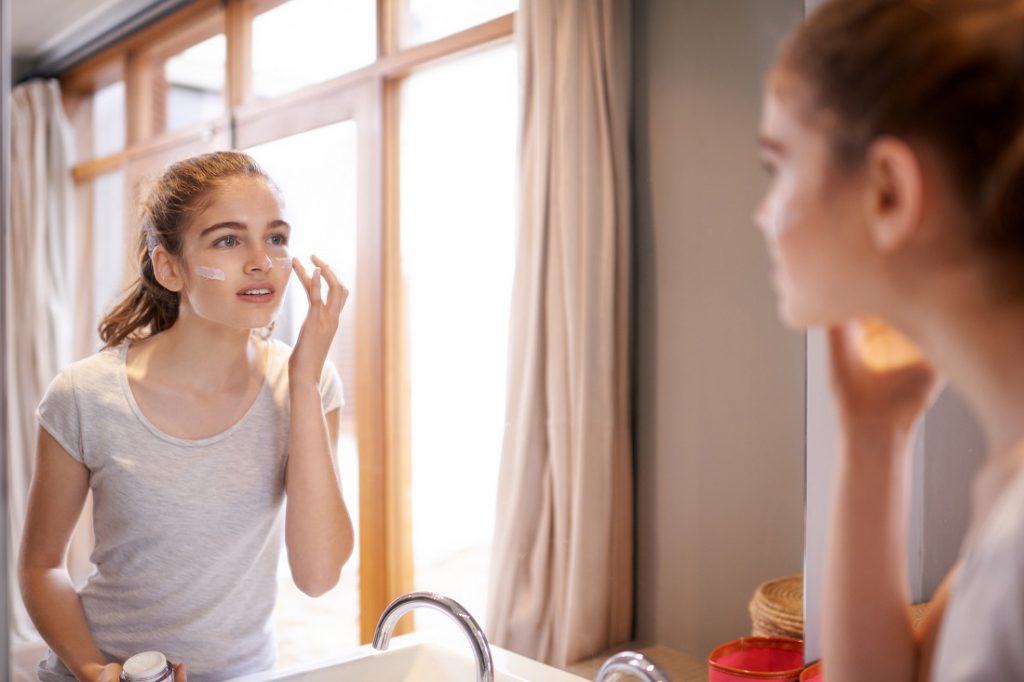Q: I’m 15 and my mom tells me I should use sunscreen every day. But I have acne and I don’t want to put anything on my face that will make it worse. I feel like getting some sun will make my skin look better, so why should I do what she says?
A: You may not like wearing sunscreen on your face because it feels greasy or like an extra layer on your skin. There are special ones for the face, though, and some are labeled oil-free, so look for those. Many are also labeled noncomedogenic, which means they won’t clog your pores and cause pimples.
You should wash your face, put your daytime acne medicine on and then put on your sunscreen. That will make you feel like you have a little barrier of protection between your troubled skin and the sunscreen. Your dermatologist will know which acne meds are safe to use during the day. Just use a thin layer under the sunscreen.
Now, there are some good reasons why you should protect your face from the sun. You might think that getting a tan will hide the red spots. If it does, it’s only temporary. When a sunburn or tan fades, it may start peeling and flaking. You might be tempted to pick at it, but picking may result in scarring, just like acne can leave pitted scars. If you have a dark skin tone, sunscreen can help you keep it more even. Many don’t want an uneven skin tone during the process of trying to clear up acne.
You know those brown age spots you see on the back of your grandparents’ hands? If you don’t use sunscreen, you might develop these dark spots earlier in life all over your face. Many young people don’t realize that wearing sunscreen has an antiaging effect and can help you avoid wrinkles like your grandparents’. You’ll stay younger-looking longer by wearing sunscreens. Most important for everyone, the excess sun you get when you’re young causes DNA damage in your skin cells that can lead to skin cancer later in life. This could mean surgeries on your face. You can avoid all that by not getting a tan and sunburns in the first place.
And by the way, hats are a great idea, too. A wide-brimmed hat is best, and you still need sunscreen, as the sun’s rays can reflect off sidewalks, sand and other surfaces.

About the Expert:
Marcy Street, MD, was a board-certified dermatologist and medical director of Doctor’s Approach in Okemos, Michigan. She did her fellowship in Mohs surgery at the University of Wisconsin with Frederic E. Mohs, MD, who invented the technique. She practiced dermatology and skin cancer care for more than 25 years.
* This article was first published in the 2017 issue of The Skin Cancer Foundation Journal.





